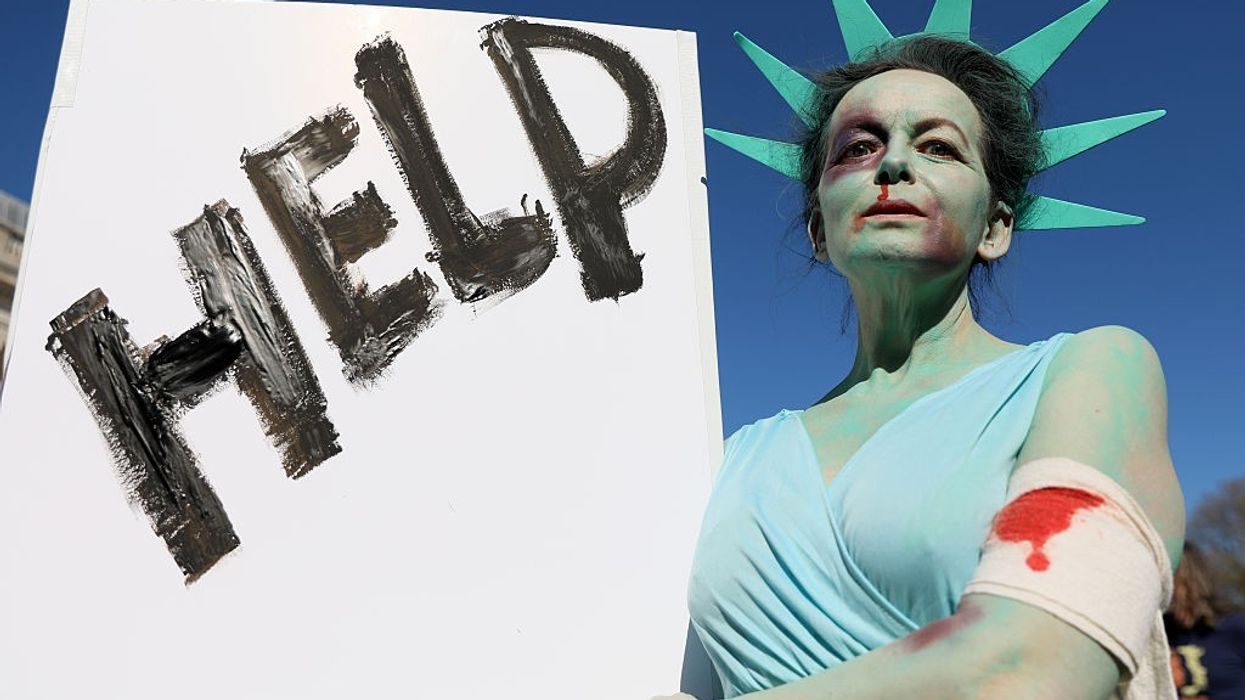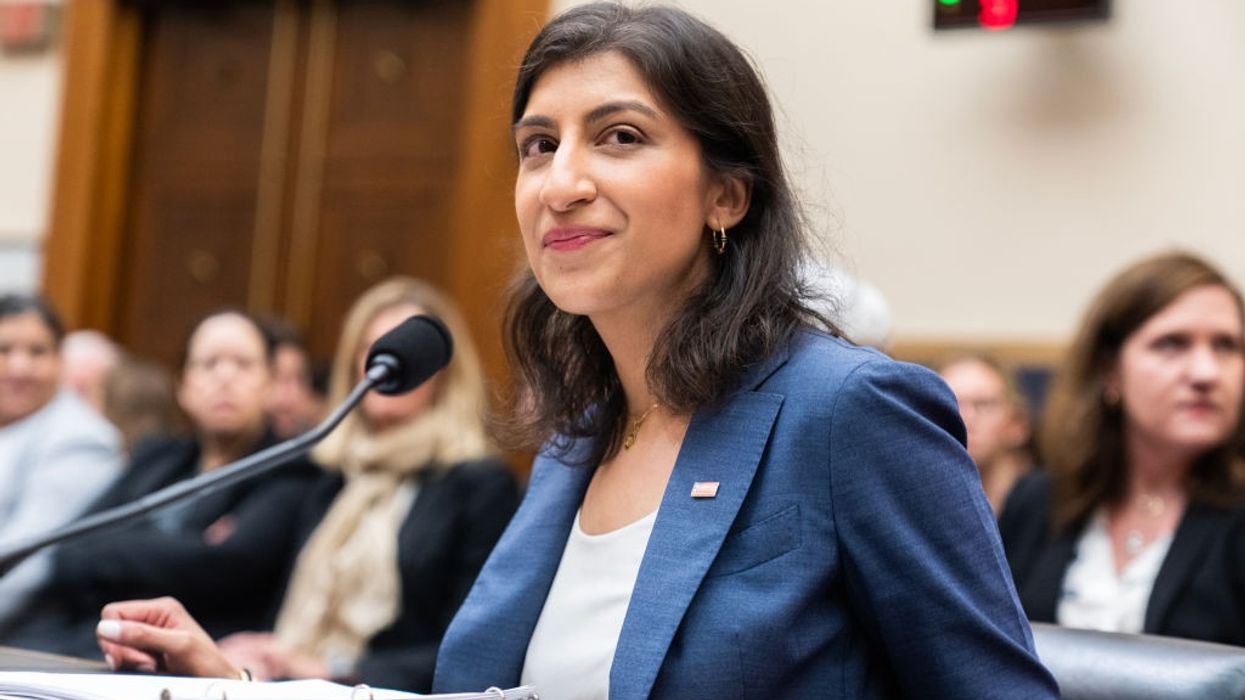10 Ways Der Führer Donald Has Already Shut Down the Federal Government
As an official government shutdown looms, here is a brief tour through the wreckage wrought by Trump so far.
The media is reporting on the approaching government shutdown on September 30, due to an impasse between the two congressional parties. US President Donald Trump is threatening more mass firings of federal workers should this occur.
Der Führer Donald has already shut down vital government programs since he ascended to his elected dictatorship on January 20. The shutdowns of critical agencies, lifesaving programs, and law enforcement are uniformly illegal and constitute impeachable offenses. Under the Constitution, only Congress can terminate or limit many of the programs axed by the rampaging Monarch.
Here is a brief tour through the wreckage wrought by Trump, Elon Musk, and Trump’s lawless maniac, the clenched-jawed Russell Vought, director of Trump’s Office of Management and Budget.
- Trump has illegally and impeachably closed the Agency for International Development, fast winding down critical humanitarian aid—medicine, food, clean water, etc.—to millions of impoverished families in poor countries abroad. Tens of thousands have already perished, according to aid officials.
- He has illegally and impeachably paralyzed the protector of consumers—the Consumer Financial Protection Bureau—that returned many billions of dollars to consumers from corporate rip-off schemes, mostly from the finance companies. Throwing corporate law and order out the window, Trump is setting records for being soft on corporate crime—ending dozens of underway prosecutions of companies by the Justice Department.
- He has illegally and impeachably closed the cabinet-level Department of Education, throwing student aid programs and the status of existing loans into dark holes of chaos.
- Across other federal agencies, Trump has closed down crucial scientific programs designed to understand and alert the people to mega storms and wildfires, infectious diseases, looming pandemics abroad, and expand basic research in medical science for the public’s health.
- With his toady Environmental Protection Agency Administrator, Lee Zeldin, Trump is chopping our protection against deadly toxic air, water, and soil pollution into pieces. He is closing down the EPA’s celebrated scientific research section; firing people everywhere; and declaring that the EPA has no authority to deal with the oil, gas, and coal fossil fuel emissions causing global warming. Crazily, he has blocked lower-priced solar energy and wind power projects, calling windmills “ugly.” This is just deranged.
- Federal Emergency Management Agency employees have signed a desperate petition to Trump to stop strip-mining the agency, stop slowing its emergency response time, and restore the staff pushed out during the Department of Government Efficiency lawlessness. For their courage, Trump fired or suspended many of these hurricane, flood, and wildfire rescuers, as he does for civil servants who sign other letters and petitions because they report they are unable to perform their work because of his actions. He has weakened an already weak Occupational Safety and Health Administration and further jeopardized the health and safety of Americans in their workplace.
- Trump has reduced successful programs such as Meals on Wheels America, Head Start, and aims to get rid of the Job Corps and AmeriCorps. Again, illegally defying congressional mandates.
- Trump, who eats well, is cutting food stamps for millions of poor Americans. This is hurting desperate families and supplying farmers.
- Earlier, Trump got through Congress a law that will cause over 10 million people to lose their Medicaid; nearly 5 million could lose healthcare coverage soon when the elimination of subsidies causes prices to skyrocket under Obamacare scheduled by the end of this year. These serious deprivations, sure to cost lives, are what the congressional Democrats are insisting be reversed before they go along with the omnibus government funding bill. GOP leaders, Speaker Mike Johnson (R-La.) and Senate Majority Leader John Thune (R-S.D.), are resisting. Of course, they have good health insurance paid for by taxpayers.
- Trump has shut down diplomacy abroad, replacing it with threats, violence, fantasies, and boastful rhetoric. The skills of the Foreign Service in the State Department are frozen under the arrogant Secretary of State, Netanyahu toady, Marco Rubio.
Many of the above-noted cuts in programs are to pay for more tax cuts to the under-taxed super rich and profit-glutted corporations. Note that Trump is NOT cutting hundreds of billions of dollars annually in corporate welfare—subsidies, handouts, giveaways, and bailouts. Nor is he going after huge fraud on the government in programs such as Medicare, Medicaid, and military procurement. Trump is willing to overlook avaricious, entrenched corporate vendors and contractors bilking Uncle Sam.
Cracking down on corporate fraud and abuse would risk his own enormous self-enrichment schemes, would end his misuse of the office of the presidency and limit his use of the White House as business headquarters. Trump, regardless of his deeply phony “populism,” has always been a hardcore corporatist!
Trump, who is egomaniacal, ignorant, and often deranged with his daily blatant lies against reality, is a world-class, cunning personality. He secures the abject loyalty of his major appointees by nominating either totally inexperienced, incompetent people to run agencies and departments or turncoats who, once defiant, become obeisant.
The former are relishing their sudden unmerited upward mobility and are not about to make waves. The latter, like Vice President JD Vance and Secretary of Health and Human Services Robert F.Kennedy Jr., feel they are under suspicion and double down on goosestepping with their boss. Neither recruitment category is likely to produce any whistleblowers. That’s how cunning Trump is with his widely criticized nominations.
Stay tuned. Let’s see how effective the Democratic Party’s polemics are to counter Trump, already blaming the Democrats for the Republican Party’s government shutdown. The Democrats can start by driving the point home to the American people about the terrible impacts Trump’s present government closures will quickly have on their health, safety, and livelihoods.


